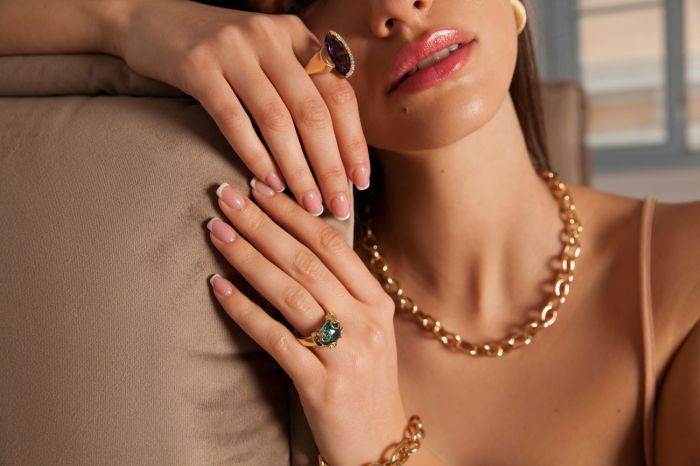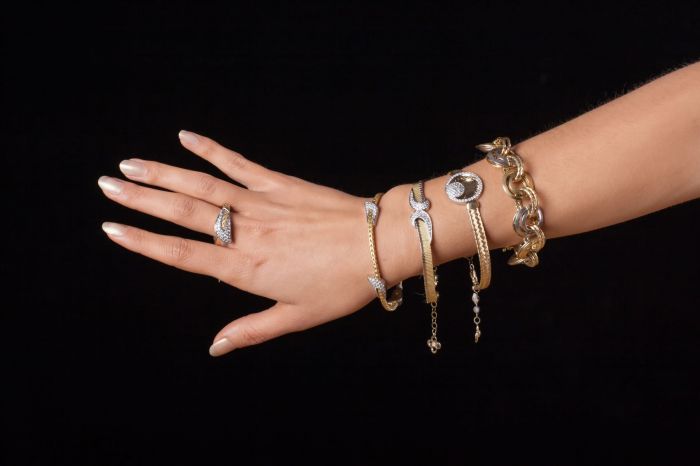Lab-grown emeralds are generally very durable. On the Mohs Scale of hardness, they score a 7.5 to 8 out of 10. This goes a long way to explain how hard and scratch-resistant they are although they are not as hard as diamonds. Like every other gemstone, emeralds require special care to ensure they last long and become worthy of generational use.
Here are a few tips for taking care of lab-grown emeralds:
Store Emeralds in Separate Jewelry Boxes
It is important to store emeralds (and other kinds of gemstones) in separate jewelry boxes. This is because these gemstones are capable of scratching each other if they get jumbled up too frequently. An emerald jewelry seem can scratch another emerald or a softer gem. Emeralds will also be easily scratched by diamonds which have the highest value on the Mohs Scale of Hardness.
Moreover, emeralds are generally brittle and susceptible to chipping despite their hardness. Thankfully, lab-grown emeralds contain minimal inclusions and will not be as brittle as heavily included emeralds.
Do not Wear Emeralds During Heavy Tasks
Seeing how delicate emerald gemstones can be, it is important to not use them during manual activities such as exercise, or any other activity that poses the risk of physical impact on the gemstone. It is also best to remove your emerald jewelry during activities that involve exposure to high heat and chemicals. All of these could cause shock to the gemstone, thereby reducing its integrity and quality over time.
Consider Periodic Professional Cleaning
Because emeralds are more prone to chipping and fractures, you should get them to an expert jeweler once you notice any major flaw that was never there before. Note that you might need to pay an expert higher for treating your emerald.
However, if you pay adequate care to your lab-grown emerald, you may never need expert repair due to flaws and chippings.
How to Clean Lab-Grown Emeralds?
While lab-grown emeralds are more flawless and less brittle, it is still important to maintain caution when cleaning them as they are not as hard as diamonds and sapphires.
Avoid Harsh Soaps
If some resin or oil has been applied as finishing to your lab-grown emerald, washing the gem with harsh soaps could cause the oils to lift from it. You may want to use just warm water, dishwashing soap, and a soft cloth if you are not sure about the use of oils in enhancing your emerald gemstone.
Note that emeralds are generally known to require extra finishing to bring out their shine, so it is fine if you discover resins or oils have been used on your emerald. It does not necessarily mean the gemstone is fake or sub-standard.
Avoid Using Ultrasonic or Steam Cleaners
While taking your emerald gemstone for expert cleaning is a great idea, you may want to avoid the ultrasonic or steam cleaners used by most jewelry stores for cleaning gemstones. The ultrasonic vibration may weaken the stone and hot steam can cause the oil or resins to sip out. This is particularly important if you are not so sure if your gemstone has been enhanced with oils or resins.
Nevertheless, note that it may still be possible to successfully use ultrasonic cleaners to clean lab-grown emeralds. You should get expert consultation and have the jeweler examine the state of the gemstone before you do this.
Conclusion
Emeralds are very beautiful gemstones. Their rich and unique green color can draw attention to the wearer in only a matter of seconds. However, emeralds require proper care and must be handled delicately. This is not to say your emerald will fall to pieces at the slightest impact - it probably never will with its hardness score. It only means that you should devote consistency and intentionality to taking care of the gemstone. If you go by the tips included here, you can be sure that your lab-grown emerald will last long.















